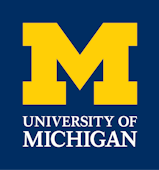
University of Michigan

Founded in 1817, the University of Michigan is widely recognized as one of the world’s leading research universities. The hallmark of the university is the breadth of excellence across its 19 schools and colleges and the exceptional degree of interdisciplinary cooperation among them.
With more than a billion dollars in research expenditures annually, and 100 graduate and professional programs ranked in the top ten in the latest U.S. News & World Report rankings, U-M is a global leader in science and technology; health, law and public policy; the arts and humanities; and a wide range of other academic disciplines.
More than 61,000 students on three University of Michigan campuses (Ann Arbor, Dearborn and Flint) come from every state and 129 countries. And with more than 540,000 living degree holders, U-M has one of the nation’s largest alumni bodies.
Discover more on the U-M website: www.umich.edu
Links
Displaying 741 - 748 of 748 articles








